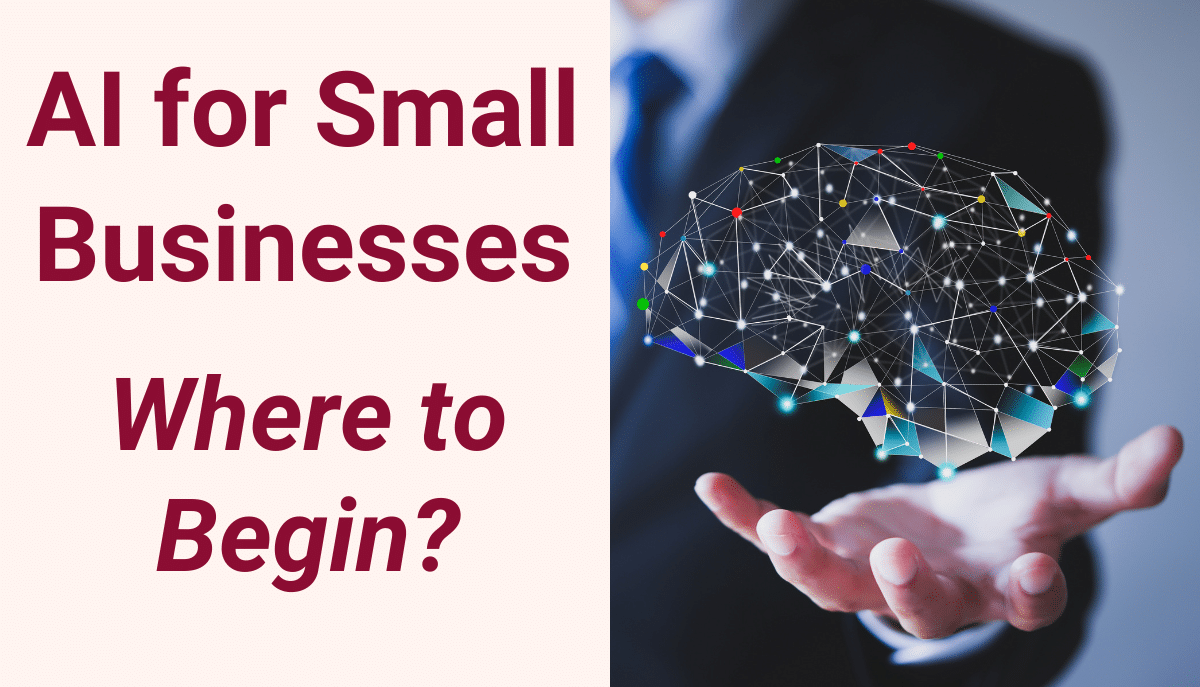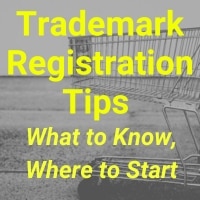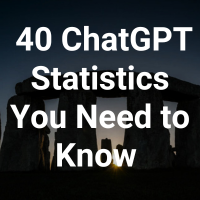Are you feeling overwhelmed by the potential of artificial intelligence? This introduction to AI for small business explores ways you can begin to navigate the AI tech waters without a significant investment or lengthy learning curve.
Artificial intelligence is no longer a far-off concept from a sci-fi movie. It’s here, it’s now, and it’s transforming the way businesses operate, including small businesses and startups.
As a small business owner, marketer, manager, or startup founder, you might think AI is beyond your reach, but it actually isn’t. While AI may seem like a complicated, cutting-edge technology that’s reserved for larger businesses with bigger budgets, the truth is that it can be used effectively by companies of all sizes.
In this blog post, we’ll explore artificial intelligence topics including:
What Is Artificial Intelligence?
Why Is AI important for Small Businesses?
How To US AI In A Small Business
AI Frequently Asked Questions
By the end of the post, you will have gained valuable insights into how to approach the use of AI in your small business. The post finishes with an FAQ about artificial intelligence.
Artificial Intelligence (AI) for Small Businesses: A Simple Explanation
The field of AI is vast and growing by the nanosecond. So, let’s start at the beginning – what is artificial intelligence?
As an example, imagine you have a super-smart assistant in your business. This assistant can learn from experiences, make data-based decisions, and even predict future trends. This assistant doesn’t need sleep, food, sick days, or vacations, and can work 24/7. That’s what AI is like!
What is AI? A Closer Look
Artificial Intelligence, commonly known as AI, refers to the simulation of human intelligence processes by machines, particularly computer systems. These processes incorporate learning, reasoning, problem-solving, perception, and language comprehension.
The term can also be applied to any machine that exhibits traits associated with a human mind, such as learning and problem-solving. At its core, AI is about imitating human intelligence by using machines.
Some key aspects of AI for business:
Mimicking Human Abilities
AI systems can process vast amounts of information and make decisions based on that data. For instance, when you use a search engine, AI search algorithms decide which results are most relevant to your query.
- Data helps AI systems learn and grow. The more data they’re exposed to, the better they get. This is often referred to as “machine learning.“
- For example, a music recommendation system learns from the songs you like and dislike to suggest new tracks.
- Some AI systems can recognize images, sounds, and even emotions. Facial recognition software that tags your friends in photos is one example.
Beyond Simple Programming
Traditional computer programs follow strict instructions written by humans. If A happens, then do B. However, AI is more dynamic and can adapt and change its behavior based on the data it processes.
- Instead of just following instructions, AI “learns” as it accumulates data from its experiences.
- The more data an AI model is exposed to, the more effective it can become.
Neural Networks & Deep Learning
Some AI systems are inspired by the human brain’s structure, using “neural networks.” These are complex algorithms designed to recognize patterns.
- “Deep learning” is a subset of this, where neural networks are layered to allow even more advanced pattern recognition. The result is like teaching a machine to think more deeply about the data it processes.
Not Just Robots
- While we often associate AI with robots, it’s essential to understand that AI is mostly software. It’s the “brain” that can be put into a robot, computer, phone, or any other device.
- For instance, the voice assistant on your smartphone (like Siri or Google Assistant) or Amazon’s Alexa are forms of AI, even though they are not robots.
Limitations
While AI can mimic many human abilities, it doesn’t “think” or “feel” like humans do.
- AI doesn’t have emotions, consciousness, or true understanding.
- AI processes data, learns from it, and makes decisions based on patterns.
- AI can make mistakes.
- AI can occasionally make up results, commonly referred to as “AI hallucinations.”
A Blend of Technologies
In essence, AI is a blend of advanced algorithms, data, and computing power, all working together to create systems that can perform tasks that would typically require human intelligence. Whether playing a game, translating languages, or predicting trends, AI is reshaping how we interact with technology and the world around us.
Why Is AI Important for Small Businesses?
A recent article in the Washington Post, “AI is so hot even KFC and Williams-Sonoma execs are talking about it – America’s public companies are embracing artificial intelligence fever.” highlights the impact of AI.
The article explained: “More than 1,000 companies mentioned the technology in their quarterly reports this summer, up from just 36 a decade ago.”
Artificial intelligence is impacting many different businesses in many different ways. Here are some reasons for the intense level of interest.
Competitive Advantage
In today’s fast-paced digital world, businesses that adopt new technologies often have an edge over those that don’t. By leveraging AI, small businesses can streamline operations, offer better customer experiences, and make more informed decisions.
- Historically, big corporations with vast resources were the primary beneficiaries of advanced technologies. However, with the democratization of AI tools and platforms, even small businesses can harness the power of AI to compete effectively.
Cost Savings & Efficiency
- AI can handle routine and repetitive tasks like data entry, appointment scheduling, or basic customer queries. This automation allows employees to focus on more value-added activities.
- Once adequately trained, AI systems can achieve a high level of accuracy, minimizing the risk of human errors in tasks like accounting or inventory management.
Enhanced Customer Experience
- AI can analyze customer data to provide personalized product recommendations, marketing messages, or content, leading to increased sales and customer loyalty.
- As mentioned earlier, AI doesn’t get “tired” or need to be paid overtime. Chatbots and virtual assistants can offer round-the-clock customer service, answering queries and resolving issues outside regular business hours.
Data-Driven Decisions
- AI can sift through vast amounts of data to extract meaningful insights. For instance, it can identify sales trends, customer preferences, or potential market gaps.
- Beyond just analyzing past data, AI can predict future trends. This could mean anticipating inventory needs, forecasting sales, or identifying potential business challenges for a small business.
Scalability
- As a business grows, the volume of data and complexity of tasks can increase. AI systems can scale with the business, handling larger datasets and more complex operations without a proportional cost increase.
- Additionally, AI systems can adapt to changing business environments, ensuring businesses remain agile and responsive to market shifts.
Innovation & New Opportunities
- Another aspects of AI is that it can open doors to new business models or revenue streams. For example, a retailer might use AI to launch a virtual try-on feature, enhancing online shopping experiences.
- With AI’s ability to learn and improve, businesses can continually refine their strategies, products, and services, leading to sustained innovation.
AI’s Wide-Ranging Impact
- AI is not just a fancy tech buzzword. For small businesses, it’s a practical set of tools and solutions to drive growth, enhance efficiency, and foster innovation.
- Embracing AI can be a strategic move to ensure long-term success in an increasingly digital world.
How To Use AI in Small Business
Artificial Intelligence (AI) is becoming a game-changing tool for businesses of all sizes, including small companies and startups.
While integrating AI into small business operations may seem daunting due to cost implications or technical complexities, a wide range of AI tools for small business are affordable and user-friendly.
With the right AI tools, small businesses can streamline operations, improve their decision-making processes, and better understand customers.
From chatbots to predictive analytics to marketing tools, a wide range of AI solutions are available for small businesses to leverage. Here are eight areas where AI tools for small business can deliver real value for your business.
1. Chatbots and Virtual Assistants:
AI-powered chatbots and virtual assistants can improve customer service by providing 24/7 support. They can handle multiple queries simultaneously, reducing wait times and increasing customer satisfaction.
- AI chatbots can also learn from past interactions, improving responses to ensure customers get the most accurate information quickly.
- For instance, chatbots can handle common customer inquiries on websites, reducing the need for human intervention and providing instant responses. This enhances customer satisfaction, especially outside of regular business hours.
Sales Assistants
- Some chatbots can function as sales assistants and guide customers through a sales process, helping them find products or services that best fit their needs.
- For example, chatbots can assist businesses like salons or clinics in booking appointments, sending reminders, or rescheduling.
Three leading examples of chatbots are: ChatGPT from OpenAI, Claude from Anthropic AI, and Google Bard.
2. Marketing Tools
As a small business, marketing dollars are precious. Making the most of every campaign is a critical element in business growth. AI is an excellent tool to enhance your digital marketing efforts and campaigns.
- AI tools for business can analyze vast amounts of data to identify patterns and trends, helping companies better understand their target audience. This data-driven insight enables businesses to create personalized marketing campaigns that resonate more effectively with customers and sales prospects.
- In SEO, AI is increasingly integral in shaping online visibility strategies, keyword research, and enhancing website ranking. It elevates SEO processes by offering more accurate insights and predictions, enabling businesses to make well-informed decisions and streamline their operations.
- Additionally, AI solutions for small business can automate repetitive marketing tasks, freeing time for employees to work on more critical tasks.
- For example, automated social media management tools powered by AI can help businesses post at optimal times and gauge sentiment, ensuring maximum reach and engagement. AI-powered analytics further enhance marketing strategies by revealing which content and messages resonate most with specific audiences.
Optimize Marketing Spending
- Some of AI’s key strengths are its ability to optimize spending, increase conversion rates, and foster stronger customer loyalty. This can lead to lower marketing costs and improved campaign results compared to traditional analytics methods.
- For example, AI tools can analyze the performance of advertisements and determine the best channels and times to reach specific audiences. In this process, AI can adjust marketing budgets accordingly to ensure a higher return on investment.
AI-Powered Writing and Content Creation
- Additionally, AI-powered marketing tools can generate primary content for blog posts or social media posts based on input data. This can help streamline marketing efforts and boost a small business’ online visibility.
- These tools can dramatically enhance and speed up content marketing programs while lowering costs to give small businesses a competitive edge.
There are a large number of AI driven marketing tools and solutions available including: WriteSonic, Jasper, MarketMuse, and Grammarly.
3. Recommendation Systems:
- AI can analyze individual customer behavior to create a personalized user experience. This can include customized product recommendations, personalized marketing messages, or even personalized customer service. These AI-powered solutions can significantly enhance customer satisfaction and loyalty.
- For instance, Online retailers can use AI to analyze a customer’s browsing history, past purchases, and preferences to suggest products they might like. Businesses with blogs or content platforms can use AI to recommend articles, videos, or content tailored to users’ interests.
- AI tools for small business can analyze customer behavior and purchasing patterns to predict what customers will buy or need. This predictive analysis can help companies tailor their offerings to meet customer needs, boosting sales and improving the bottom line.
Three leading examples of recommendation systems using AI include: Optimizely, Algolia, Recombee,
4. Human Resources and Recruitment:
As a small company, hiring the right people is paramount. By integrating AI into HR and recruitment processes, small businesses can streamline operations, make data-driven decisions, and enhance the employee and candidate experience.
Recruitment and Hiring
- Leveraging AI tools for small business in the HR and recruitment sectors can significantly enhance how small businesses operate. AI-powered tools can swiftly screen and rank resumes based on predefined criteria, eliminating manual sorting and ensuring only the most suitable candidates are shortlisted.
- Additionally, chatbots can handle routine candidate queries, providing instant responses and enhancing the candidate experience.
- Automated systems also streamline the interview process, coordinating with candidates to schedule interviews. More advanced AI tools can analyze video interviews for deeper insights into candidates’ suitability based on body language and tone.
Onboarding and Training
- Beyond the recruitment phase, AI tools for business can play a pivotal role in employee onboarding, training, and engagement. Personalized onboarding experiences ensure new hires receive relevant information, while AI-driven surveys and predictive analytics gather feedback.
- Furthermore, AI can assess the current skill set of the workforce, recommend personalized learning paths, and highlight areas that might benefit from additional training or resources.
Maintaining A Balance
- However, while the advantages of AI in HR are numerous, small businesses must also navigate potential challenges. Ensuring data privacy and security is paramount, and companies must be wary of potential biases in AI algorithms.
- Maintaining a balance between automation and the human touch is crucial, ensuring the recruitment process remains personal and genuine. By integrating AI thoughtfully, small businesses can harness its power to improve the recruitment process and results.
Some leading examples of AI driven HR & Recruitment systems include: Beamery, Jobvite, Pymetrics, Breezy, XOR.ai, and Zoho Recruit.
5. Forecasting:
AI can examine market trends and predict future patterns, enabling businesses to stay ahead of the curve. Whether identifying the next big product trend or predicting changes in customer behavior, AI can provide valuable foresight to help your business adapt and thrive.
- AI tools can analyze past sales data to predict future sales trends, helping businesses prepare inventory or adjust marketing strategies.
- An example where AI from small business can provide tangible results is in restaurants or cafes. AI can predict busy times or popular menu items, ensuring they’re adequately staffed and stocked.
- Artificial intelligence is precise and consistent, making it excellent for tasks requiring accuracy. From data entry to financial calculations to forecasting, AI can reduce the risk of costly errors that harm your business’s credibility and bottom line.
Some leading examples of AI driven forecasting solutions include: Centage, DataRobot, and ForecastPro.
6. Inventory Management:
Another area where artificial intelligence can provide real value is inventory management. AI has the ability to analyze and predict supply and demand trends, helping businesses optimize their supply chain management. This can reduce costs, improve efficiency, and ensure the right products are available at the right time.
- AI tools can predict demand for products based on historical data, current market trends, season of the year, and other relevant factors. This allows businesses to optimize their inventory levels, reducing the risk of overstocking or understocking.
- For example, AI can analyze patterns for businesses like restaurants to identify perishable items that might go to waste, suggesting promotions or discounts to move them faster.
- Efficient inventory management means less wasted resources, better cash flow, and a smoother supply chain operation, all crucial for the growth of small businesses.
Examples of AI driven inventory management solutions include: Clear Spider, EasyStock, and DemandCaster.
7. Financial Management:
Financial planning is a cornerstone of any successful business. AI business tools can analyze vast amounts of financial data to provide accurate forecasts. This aids businesses in budgeting, planning, and allocating resources more effectively.
- By predicting market trends, businesses can make proactive decisions, seize opportunities, and mitigate risks. Financial AI systems can also monitor global economic indicators, providing insights into potential external challenges or opportunities.
- Additionally, AI can monitor transactions to detect unusual patterns, alerting businesses to potentially fraudulent activities. Another practical finance task for AI-powered tools is expense reporting to categorize and track expenses, making accounting and tax preparation more straightforward.
8. Leverage AI for Competitive Research
Knowing your competition is table stakes as a small company. Small business AI solutions can monitor competitors’ websites, social profiles, and business filings.
This data gathering can provide intelligence on new competitor products, pricing strategies, promotions, locations, and leadership changes.
- Integrating AI into your competitive research can save time, reduce costs, and gain a deeper understanding of the market landscape, enabling you to act swiftly and stay ahead of the competition.
- AI’s potential in competitive research lies in its ability to analyze vast amounts of data quickly and accurately. Traditional methods of competitive research often involve time-consuming manual data collection and analysis.
- However, AI significantly reduces this time by automating these processes, enabling businesses to respond faster to market changes.
- Additionally, AI can identify patterns and trends in the data that may go unnoticed with manual analysis, providing deeper insights into competitors’ behavior.
Examples of AI driven competitive research solutions include: Owler, Kompyte, Crayon, and Brandwatch.
Are AI tools for Small Businesses Complicated?
Not necessarily! Many tools and software products are available today, making it easier for small businesses to get started and use AI without needing to be tech experts.
AI is just a set of tools. It’s how you use it in your business that makes the difference. It can be a game-changer, helping you save time, reduce costs, and serve your customers better. Think of AI as more tools to help your business grow.
While it might seem intimidating to implement AI tools, there are many accessible resources available to help. These include YouTube videos, online tutorials, free and paid courses, and consultants who specialize in helping small businesses take advantage of AI.
AI Is Not A Silver Bullet
It is important to remember that while AI can provide valuable insights and automation, combining AI’s output with human intuition and expertise is essential for the best results. It is also important to remember that even though AI can run 24/7 and doesn’t get tired, it can still occasionally make a mistake, just like humans.
Conclusion: The Time for Small Businesses to Adopt AI is Now
Artificial intelligence is no longer a distant future concept; it’s a present-day reality with practical applications for small businesses in every sector.
Today’s AI tools for small business are increasingly accessible and user-friendly. Remember, embracing AI doesn’t mean replacing the human touch—it’s about enhancing business capabilities and driving growth.
So, if you’re a small business owner, manager, or marketer hesitating at the threshold of the AI revolution, consider this your call to action. The technology is ready, the tools are available, and the benefits are manifold. Embrace AI not as a challenge but as an opportunity to grow.
FAQ (Frequently Asked Questions) for AI for Small Business
Q1. What is Artificial Intelligence (AI)?
A1: Artificial Intelligence, commonly known as AI, refers to the simulation of human intelligence processes by machines, particularly computer systems. These processes incorporate learning, reasoning, problem-solving, perception, and language comprehension. The term AI is frequently applied to any machine that exhibits traits associated with a human mind, such as learning and problem-solving.
Q2. Is AI only for large businesses with big budgets?
A2: No, AI is not exclusive to big businesses. While it may seem like a complex technology that requires a large budget, small businesses can also benefit from AI. There are various scalable and affordable AI solutions tailored specifically for small businesses. And more new applications are surfacing every week. The AI landscape is evolving rapidly.
Q3. How can AI benefit my small business?
A3: AI can serve as a super-smart assistant for your business. It can learn from experiences, make data-driven decisions, predict future trends, and operate 24/7 without needing breaks, sleep, or vacations. Artificial intelligence is not just a fancy tech buzzword. For small businesses, it’s a practical set of tools and solutions to drive growth, enhance efficiency, and foster innovation.
Q4. Why is it important for small businesses to consider AI?
A4: AI can automate repetitive tasks, analyze large data sets, and provide insights to help decision-making. This allows small businesses to operate more efficiently, save time, and focus on growth. Businesses that adopt new technologies often have an edge over those that don’t. Ignoring AI can lead to falling behind competitors and potentially impact business profitability.
Q5. What are some examples of AI in small business?
A5: The blog post delves into specific examples, but AI can generally be used in customer service (chatbots), virtual assistants, sales predictions, inventory management, human resources and recruitment, marketing automation, and competitive research, among other areas.
Q6. Does implementing AI require a significant investment or a steep learning curve?
A6: Not necessarily. While there’s a learning curve associated with any new technology, many AI tools and solutions tailored for small businesses are user-friendly and don’t require a major investment. Some products and services your business is currently using may have elements of AI within them already.
Q7. How can I start integrating AI into my business operations?
A7: Begin by understanding the needs of your business and identifying areas where AI can add value. Then, begin researching AI tools that are designed for small businesses. Consider starting with a specific function, like customer service or marketing, before expanding to other areas.
Handpicked Related Posts from Our Blog (click on the icon)




